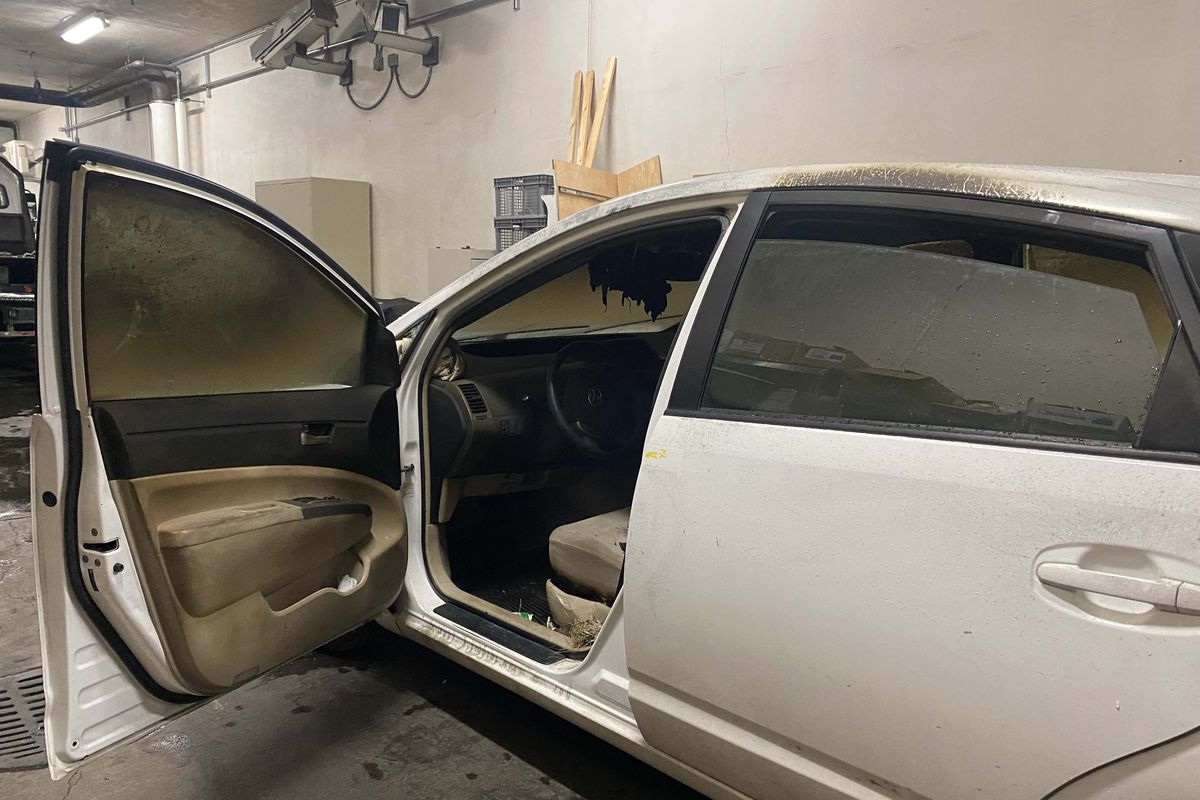Jurors shown photos of woman strangled then set on fire during murder trial of her ex-husband

On Jan. 31, 2020, Yasir Darraji went to work delivering furniture.
The night before, his ex-wife, Ibtihal Darraji, was found strangled in a burning car near her South Hill apartment.
Then he got a text from Sajida Nelson, a woman he knew from World Relief, the refugee resettlement agency that helped him and his family when they arrived in America from Iraq.
Nelson asked Darraji to call her, and he did, she testified on Monday during Darraji’s trial for his wife’s death.
On the phone, Nelson asked if Ibtihal Darraji had come to pick up the couple’s son like she was supposed to the night before. Darraji told her his ex-wife never showed up.
Darraji later told investigators conflicting information, that his ex-wife had come to pick up their son and the two argued, according to court records and prosecutor statements.
Nelson told Darraji she heard from a fellow Iraqi immigrant that Ibtihal Darraji was dead. Darraji didn’t react, Nelson told the court, and the conversation ended with Nelson asking Darraji to check if his ex-wife had picked up their son from school. Nelson told jurors that at the time, she didn’t believe the rumors of Ibtihal Darraji’s death.
Not long after, Darraji abruptly left work, his boss, Luke Springfield, testified. Springfield said he heard through another employee that Darraji had a family emergency.
At the same time, Spokane County Sheriff’s Detective Justin Palmer was setting up surveillance to watch Darraji near the warehouse. When Palmer heard Darraji was on the move he was concerned because his backup units had not arrived yet, Palmer testified.
Palmer worried that Darraji had heard his son and daughter had been picked up by Child Protective Services. As Darraji sped out of the area, Palmer was able to slow him down by driving into his lane, he said.
By then another officer arrived and pulled Darraji over.
While Darraji was “very cooperative,” he didn’t ask any questions about what was going on or mention the family emergency, Palmer said.
Palmer said he found Darraji’s lack of questions “extremely odd,” he said.
Later that day, Darraji was arrested in connection to his ex-wife’s death.
Several forensic technicians testified Monday as well.
Sheri Jenkins, a forensics specialist with the Washington State Patrol Crime Lab, testified there was an “abundant” amount of gasoline on Ibtihal Darraji’s clothes, car seat covers and the car’s carpet.
Brittney Wright, a forensic DNA scientist with the lab, testified she found Darraji’s DNA on the driver side door control panel and steering wheel, but did not find match his DNA to DNA found anywhere else in the car.
When asked by defense counsel if Darraji could have left his DNA in the vehicle during a custody exchange of their son, Wright said it was possible.
Dr. Veena Singh, Spokane County’s chief medical examiner, testified that Ibtihal Darraji’s died by strangulation.
Two bones in her neck were broken along with cartilage, Singh said, and the fractures were on both sides and in the center of her neck.
It takes, at minimum, one to two minutes to strangle someone, Singh said, noting there was significant force used in this case as evidenced by the multiple breaks.
Singh was unable to see any other injuries on Ibtihal Darraji’s body due to the significant burns. Jurors saw autopsy photos showing extreme burns to her upper body and face, at some points so severe bone was visible.
Ibithal Darraji was dead before the fire was set, Singh said. There was no evidence of smoke or soot in her lungs.
Darraji’s trial is expected to continue Tuesday.
Editor’s Note: An earlier version of this story mistakenly indicated where DNA experts found Yasir Darraji’s DNA. Experts matched his DNA to the steering wheel and front door control panel of the car but did not match his DNA to that found anywhere else in the car.